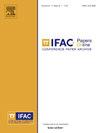基于模型的柴油机燃烧控制优化
Q3 Engineering
引用次数: 0
摘要
在延长传统压缩点火发动机使用时间的背景下,聚氧二甲基醚(OMEx)代表了一种具体的替代燃料解决方案,其高效率和功率密度仍然使其成为长途运输的首选解决方案。这些电子燃料的化学结构确保了烟灰排放的显著减少,同时它们增强的燃烧效率导致了氮氧化物方面的许多优势。下面的研究重点是开发一个一维模型,用于设计和优化控制策略,目的是减少由于在柴油混合物中引入OMEx而导致的能量缺陷。该方法涉及用于模拟传统柴油机性能的燃烧模型的初步开发和验证。校正程序和模型参数的识别使用GT-Suite软件执行,并考虑到发动机地图上不同的工作点。随后,对柴油/OMEx混合燃料的减排和优化控制策略进行了评估。本文章由计算机程序翻译,如有差异,请以英文原文为准。
Model based combustion control optimization of compression ignition engine fuelled with Diesel/OMEx blends
Polyoxymethylene dimethyl ethers (OMEx) represent a concrete solution as drop-in fuels in the context of lengthening the usage of conventional compression ignition engines, whose high efficiency and power density still make them the preferred solution for long-haul transportation. The chemical structure of these e-fuels ensures a significant reduction in soot emissions, while their enhanced combustion efficiency leads to many advantages in terms of NOx. The following study focuses on the development of a one-dimensional model for the design and optimization of control strategies with the objective of reducing the energetic drawback resulting from the introduction of OMEx in blends with Diesel. The methodology is concerned with the initial development and validation of the combustion model that is employed to simulate the performance of conventional Diesel engines. The calibration procedure and the identification of model parameters are executed using the software GT-Suite, with consideration given to different operating points across the engine map. Subsequently, an assessment of the emission reduction and optimization control strategies for Diesel/OMEx blends is conducted.
求助全文
通过发布文献求助,成功后即可免费获取论文全文。
去求助
来源期刊

IFAC-PapersOnLine
Engineering-Control and Systems Engineering
CiteScore
1.70
自引率
0.00%
发文量
1122
期刊介绍:
All papers from IFAC meetings are published, in partnership with Elsevier, the IFAC Publisher, in theIFAC-PapersOnLine proceedings series hosted at the ScienceDirect web service. This series includes papers previously published in the IFAC website.The main features of the IFAC-PapersOnLine series are: -Online archive including papers from IFAC Symposia, Congresses, Conferences, and most Workshops. -All papers accepted at the meeting are published in PDF format - searchable and citable. -All papers published on the web site can be cited using the IFAC PapersOnLine ISSN and the individual paper DOI (Digital Object Identifier). The site is Open Access in nature - no charge is made to individuals for reading or downloading. Copyright of all papers belongs to IFAC and must be referenced if derivative journal papers are produced from the conference papers. All papers published in IFAC-PapersOnLine have undergone a peer review selection process according to the IFAC rules.
 求助内容:
求助内容: 应助结果提醒方式:
应助结果提醒方式:


